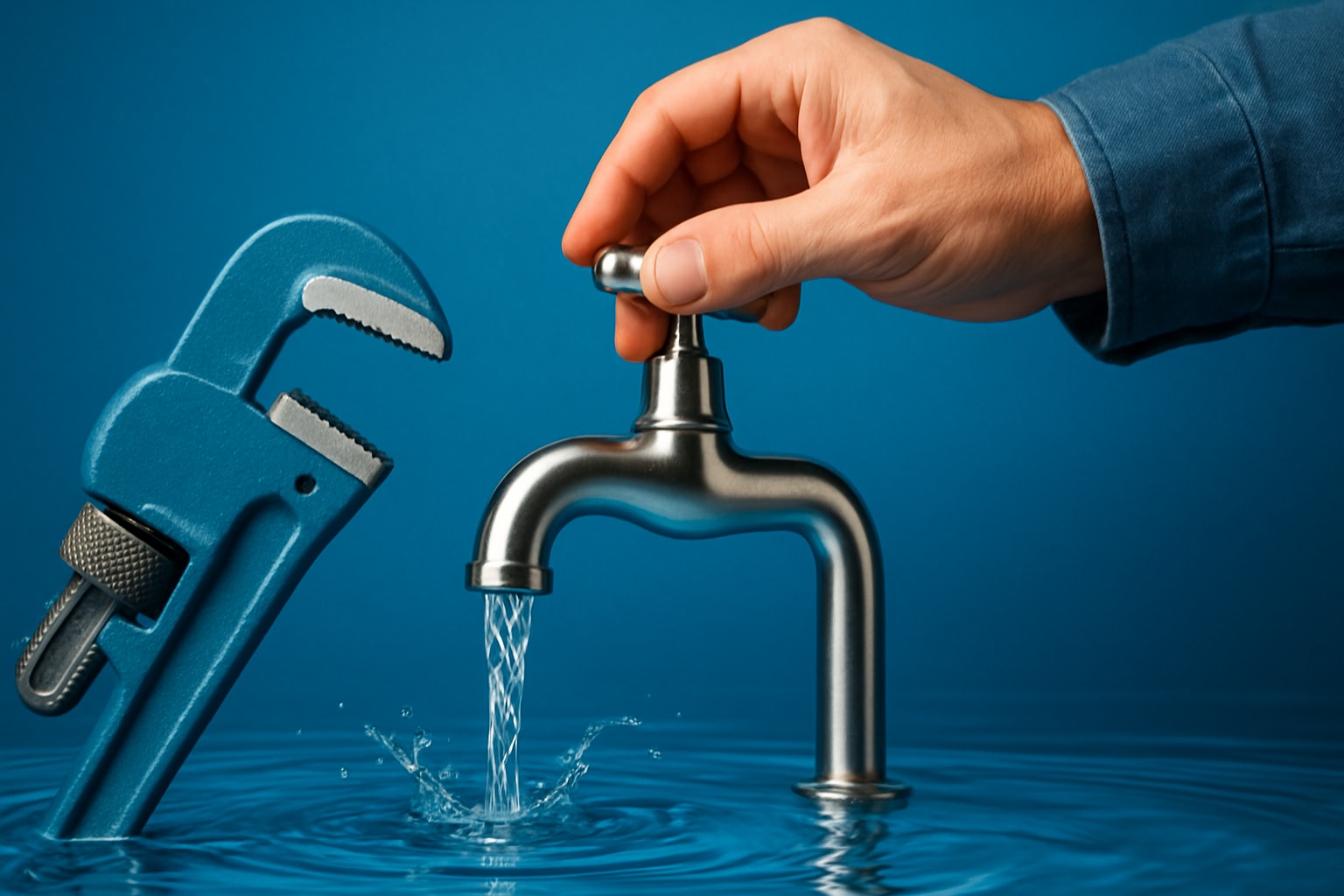Imagine turning on your tap and always having clean, steady water at home or work. No leaks, no surprises, just peace of mind. In this guide, you’ll get expert tips from a water supply plumber to help you keep your plumbing in top shape for 2025. We’ll walk you through the basics, the newest trends, simple ways to fix problems, and when it’s smart to call a pro. If you ever have questions, you can call, chat, or email us—we’re always happy to help you keep your water running smoothly.
Understanding Your Water Supply System
Ever wonder how clean water gets from the street to your kitchen sink every day? Your water supply system is like a superhero team working quietly behind the scenes. Let’s break down how these parts come together, what can go wrong, and how a water supply plumber keeps everything running smooth.
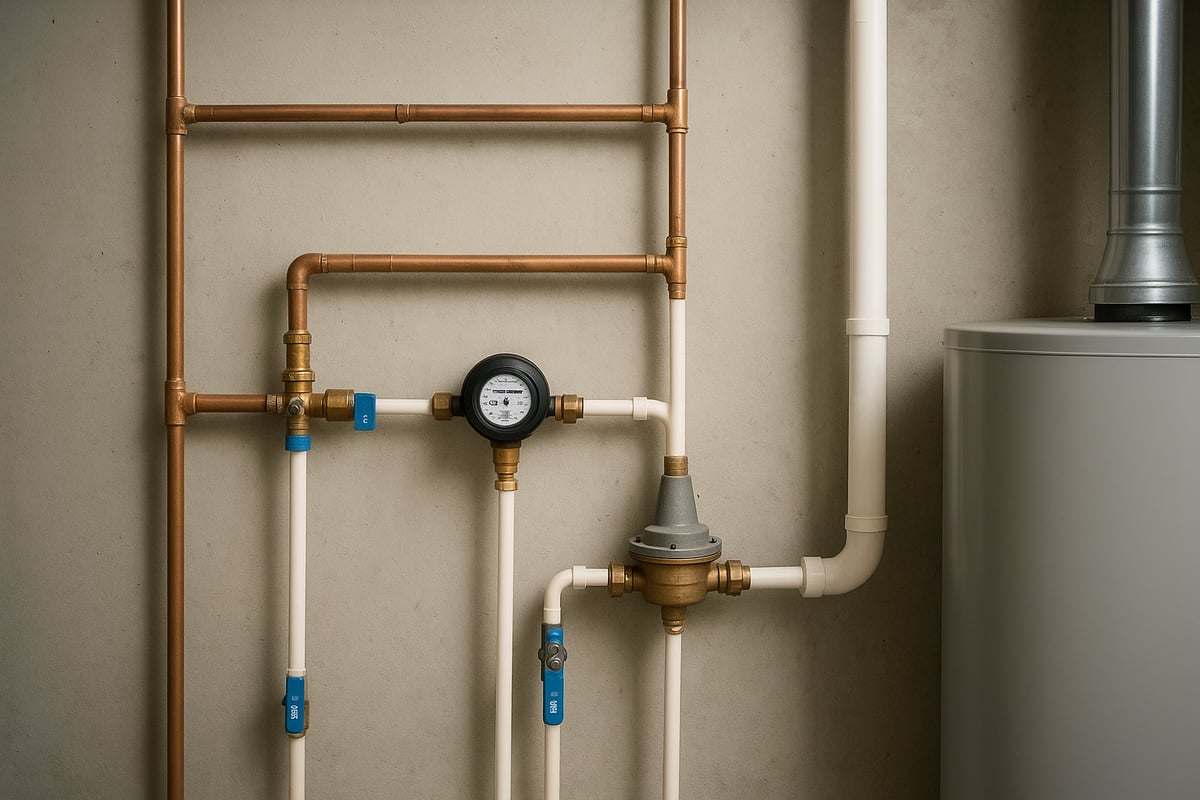
Key Components of a Modern Water Supply
A home’s plumbing is made up of many important pieces. The main parts include pipes (copper, PEX, and PVC), shut-off valves, water meters, and pressure regulators. All these work together to move water safely and smoothly.
Backflow prevention devices stop dirty water from sneaking back into your clean water. Water filtration systems help remove unwanted stuff, giving you fresh water every time you turn on the tap.
Don’t forget the water heater—this keeps your showers warm and your dishes clean. In a typical Atlanta home, water travels from the city’s pipes, through a water meter, and then flows to your faucets, ready to use. If you ever have questions, a water supply plumber can walk you through your own setup or help you find hidden valves.
How Water Gets to Your Home or Business
Water can come from two main sources: city water or a private well. In most Atlanta neighborhoods, city water travels through underground pipes, passes a main shut-off valve near your home, and then moves through your pipes to every tap.
Water pressure is what pushes water through the pipes. If the pressure is too low, showers turn into slow drips. Knowing where your main shut-off is can save the day if you need to stop water fast. A water supply plumber is trained to help you find this spot and keep your pressure just right.
Next time you fill a glass of water, think about the journey it took to reach you! If you’re ever unsure about your water’s path, just call, chat, or email us. We’re happy to help you figure it out.
Common Water Supply Problems in 2025
Even the best systems can have issues. Old pipes may corrode or leak, causing water to drip where it shouldn’t. Pressure can drop, leaving you frustrated with weak flows. Sometimes, cross-connections or faulty backflow devices let unsafe water mix with your clean supply.
Hard water and scaling can clog pipes, making appliances work harder. According to the EPA, many U.S. homes have pipes over 50 years old, leading to more leaks each year. Wondering if you should fix or replace your old pipes? Check out Should I repair or replace old pipes for expert advice. Your water supply plumber can help you decide what’s best for your home.
Signs Your Water Supply Needs Attention
How do you know when it’s time to call in a water supply plumber? Watch for these warning signs:
- Low water pressure
- Water that looks brown or tastes odd
- Leaks or puddles under sinks
- Strange noises from pipes
- Sudden spikes in your water bill
One Atlanta homeowner found a hidden leak after noticing a high bill and a faint drip in the wall. Don’t wait—if you spot these clues, get help before things get worse. We’re always ready to answer your questions.
Linking to Key Services
Sometimes, a water supply plumber is your best friend. If you find leaks, pressure problems, or want a full checkup, call for a plumbing inspection. Issues with sewers and drains can affect your water supply too.
Remember, your water heater is a big part of the system’s health. We’re here for you—call, chat, or email anytime. No question is too small!
New Plumbing Technologies & Trends for 2025
Plumbing is changing fast, and if you want your home or business to have steady, clean water, it helps to stay up to date. Let’s look at the coolest new technologies and trends that every water supply plumber is using for 2025. These upgrades make water systems smarter, safer, and greener. If you have any questions about what’s right for you, you can always call, chat, or email us — we’re happy to help.
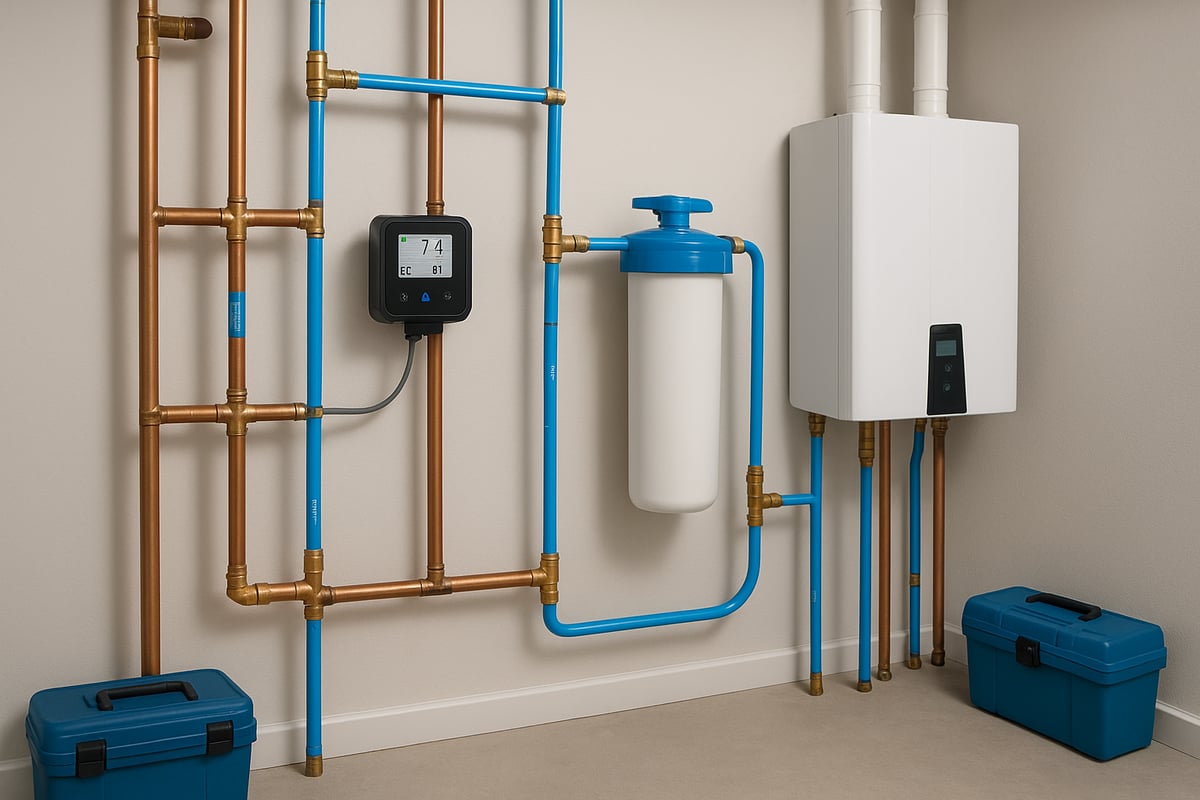
Smart Water Monitoring Systems
Imagine a tiny superhero living inside your pipes, always on the lookout for leaks. That’s what smart water monitoring systems do. These nifty sensors spot leaks and drips the moment they start. They send alerts to your phone or tablet, so you can act fast before small problems turn into big ones.
Many Atlanta businesses have already saved thousands of dollars just by installing these smart monitors. If you’re looking for a water supply plumber who understands the latest tech, you’ll want someone who recommends these systems. It’s peace of mind in a box, and it can help protect your home from water damage.
Eco-Friendly Plumbing Solutions
Saving water is not just good for the planet — it’s good for your wallet, too. Today’s water supply plumber can install low-flow toilets, high-efficiency aerators, and cool tankless or hybrid water heaters. These upgrades use less water and energy without making you sacrifice comfort.
Rainwater harvesting is another smart trend. It lets you collect rainwater to use for your garden or even flushing toilets. The EPA says that modern fixtures can save thousands of gallons each year. If you’re thinking about going green, ask your plumber what eco-friendly options are right for your home.
Pipe Material Innovations
Not all pipes are created equal. A modern water supply plumber will help you choose between PEX, copper, or PVC pipes. Newer PEX pipes are flexible, long-lasting, and easier to install. Updated copper pipes are tough and resist bacteria. PVC is lightweight and budget-friendly.
Here’s a quick comparison:
| Pipe Type | Durability | Lifespan | Safety |
|---|---|---|---|
| PEX | High | 40+ yrs | No corrosion |
| Copper | Very High | 50+ yrs | No lead |
| PVC | Medium | 25+ yrs | No rust |
These choices mean fewer leaks and headaches down the road. If you’re not sure which is best, just ask — we’re glad to help you decide.
Water Quality Upgrades
Clean water is a must for every family. In Atlanta, water sometimes faces extra challenges, like minerals or old pipes. That’s why many homeowners are adding whole-home filtration systems. These filters catch dirt, chemicals, and even tiny germs before they get to your tap.
Backflow prevention devices are also important. They stop dirty water from sneaking back into your clean supply. According to the CDC report on waterborne diseases in the U.S., keeping your water safe helps prevent sickness. If you’re worried about water quality, your water supply plumber can test your water and suggest upgrades.
Linking to Key Services
If you’re planning a big bathroom remodeling project, or want to upgrade your sinks and faucets for better water efficiency, now’s the perfect time to talk to a water supply plumber. These upgrades can make a big difference in your water bill and daily comfort.
Need help with sewers and drains, or thinking about a new water heater? We have you covered there, too. Whatever your plumbing dreams are for 2025, our team is ready to walk you through every step. Call, chat, or email us with any questions — we love helping our neighbors get the best water possible.
Step-By-Step Water Supply Maintenance Guide
Keeping your plumbing in top shape doesn’t have to be hard or overwhelming. With the right habits and help from a trusted water supply plumber, you can keep clean water flowing year-round. Let’s break down the steps so you know exactly what to check and when. If something seems tricky, remember, you can always call, chat, or email us at Fix & Flow—we love helping Atlanta families and businesses!
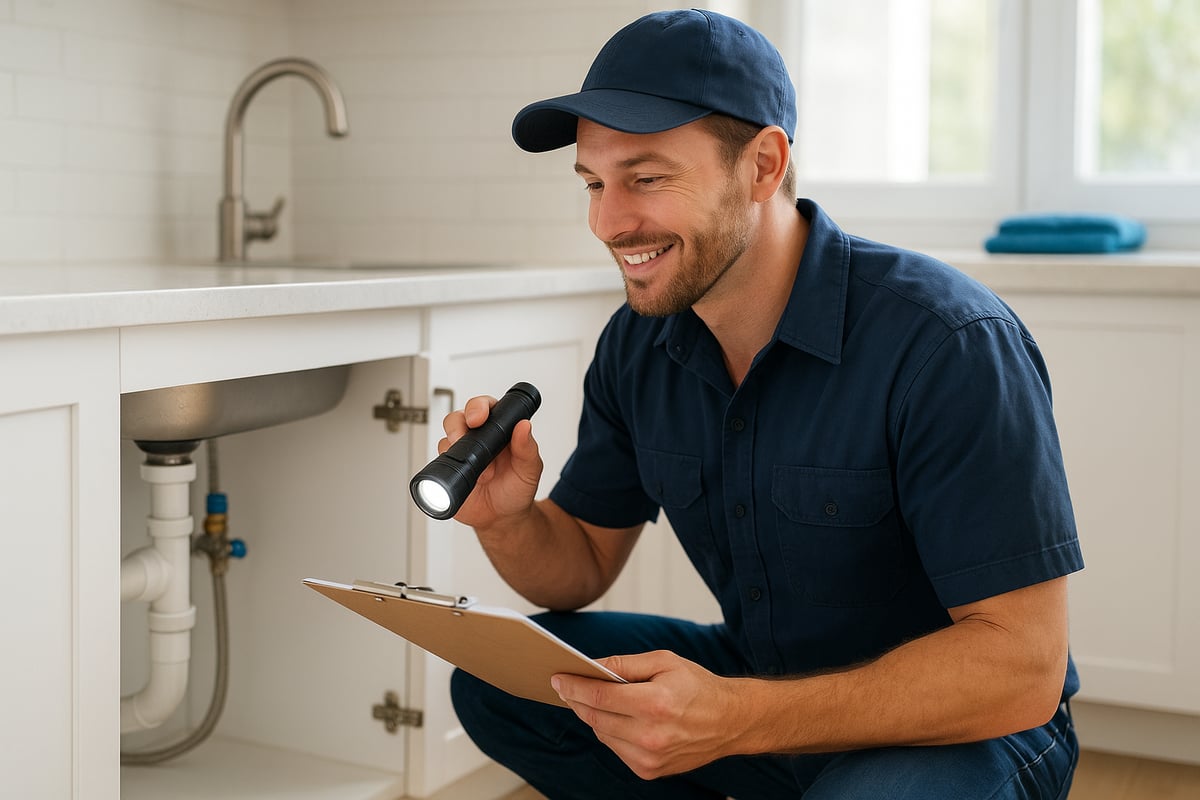
Annual Plumbing Inspection Checklist
Every year, it’s smart to give your home’s plumbing a careful look. A water supply plumber will check for leaks, corrosion, and hidden trouble. But you can do a lot yourself, too!
- Inspect all visible pipes for signs of drips, rust, or corrosion.
- Make sure you know where your main shut-off valve is and test it.
- Test water pressure at faucets and showers.
- Examine connections to your water heater.
- Check for proper drainage and venting.
Spring is a great time for this checklist, especially before Atlanta’s summer storms. If you spot anything odd, contacting a water supply plumber can catch small issues before they become big headaches.
Seasonal Water Supply Care Steps
Different seasons bring different challenges for your plumbing. A water supply plumber knows that winter can freeze pipes, while summer may bring extra water usage.
- In winter, insulate exposed pipes and disconnect outdoor hoses.
- Flush your water heater to clear out sediment.
- In summer, check for leaks from extra watering or sprinkler use.
- In fall, inspect pipe insulation and prepare for colder weather.
For Atlanta homes, winter freezes can sneak up fast. A water supply plumber recommends wrapping pipes early and checking for drafts. Staying ahead with these steps keeps your water supply steady and safe.
DIY Leak Detection and Prevention
Leaks can hide in walls or under floors, but you can spot signs before they cause big problems. A water supply plumber often uses these simple tricks:
- Watch for unexplained puddles or damp spots.
- Put food coloring in your toilet tank—if it seeps into the bowl, you’ve got a leak.
- Track your water meter for unusual spikes in usage.
- Install basic leak detectors under sinks or near your water heater.
If you suspect a hidden leak, check out this step-by-step guide on how to find a water leak inside a wall. Quick action can save you money and prevent water damage. And if you ever feel unsure, your friendly water supply plumber at Fix & Flow is just a call away.
Keeping Water Clean and Safe
Clean water is essential for your family’s health. A water supply plumber suggests regular habits to keep your water safe:
- Remove and clean faucet aerators and showerheads to clear out debris.
- Replace water filters as recommended.
- Prevent backflow by making sure hose bibs have proper vacuum breakers.
- Use simple home test kits to check water quality.
Atlanta’s water is generally safe, but regular checks help avoid surprises. If you notice odd smells or colors, your water supply plumber can recommend solutions, from filtration systems to full inspections.
Maintaining Water Heaters for Longevity
Your water heater works hard every day. With a little care, it can last for years. A water supply plumber will:
- Flush the tank once a year to remove sediment.
- Inspect the anode rod for signs of wear.
- Set the temperature to a safe 120°F.
- Watch for rust, leaks, or odd noises.
If you ever run out of hot water, see leaks, or hear banging, it’s time for a water heater checkup. Fix & Flow can help with repairs or upgrades, including tankless and hybrid water heaters.
When to Call a Pro
Sometimes, you need a water supply plumber’s expertise. Call us if you notice:
- Persistent leaks or pressure problems
- No hot water or strange pipe noises
- Big repairs, upgrades, or remodels
- Wanting to install smart or eco-friendly systems
A licensed water supply plumber knows Atlanta codes and keeps your home safe. If you need help with sewers and drains, bathroom remodeling, or plumbing inspections, Fix & Flow is always here. Call, chat, or email us anytime with questions—we’re glad to help!
Troubleshooting Common Water Supply Issues
Ever turned on your faucet and wondered why your water is acting up? Every water supply plumber knows that even small issues can cause big headaches if left alone. Let’s walk through the most common water supply problems and how you can spot and fix them, or when it might be time to call in the pros. You can always call, chat, or email us if you need help or have any questions. We’re here for you!
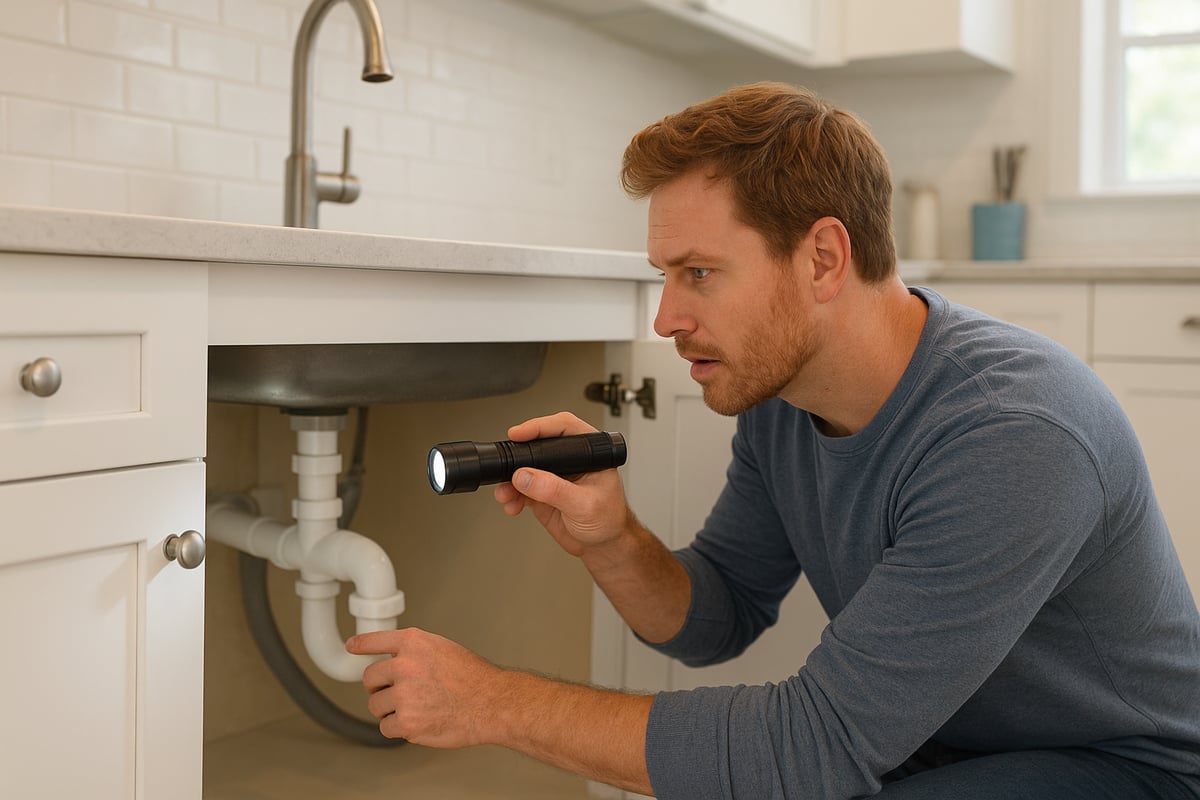
Diagnosing Low Water Pressure
Low water pressure is a super common problem, and it can make showers and dishwashing feel like a chore. If you notice your water isn’t coming out strong, a water supply plumber will usually start by checking for leaks, clogged pipes, or an issue with the main shut-off valve.
Here’s a quick way to test: Turn off all faucets and see if the water meter is still moving. If it is, you might have a hidden leak. Also, ask your neighbors if they’re having the same issue. If they are, it could be a city supply problem, not just your home.
Need more details? Check out our guide on Diagnosing low water pressure issues for easy steps you can try at home. If you’re stuck, our team is happy to help.
Fixing Leaks and Drips
Leaky pipes and dripping faucets waste water and can sneak up on your wallet. A water supply plumber will first find out if the leak is easy to spot or hiding behind walls. You can check under sinks, around toilets, and near your water heater for any damp spots or puddles.
If you spot a leak, turn off the main water valve and try a temporary fix like plumber’s tape. For bigger leaks or if pipes look rusty, it’s best to have a professional take a look. Sometimes, replacing old pipes is smarter than patching them up over and over.
Don’t forget, a small drip can waste gallons every day. If you’re not sure what to do, just call, chat, or email us for advice.
Dealing with Discolored or Smelly Water
If your water looks brown, yellow, or has a weird smell, it can be worrying. A water supply plumber will tell you that rust, sediment, or even bacteria could be the cause. Sometimes, flushing your pipes by running all the cold taps for a few minutes helps clear things up.
Try removing and cleaning faucet aerators, since gunk can build up there. If water still looks or smells odd, it’s time for a water quality test. Home test kits are easy to use and can spot bigger problems.
If you ever feel unsure, reach out to our team. We’re always happy to help you get safe, clean water at home.
Solving Water Heater Problems
No hot water? Strange noises from your tank? These are signs your water heater needs some attention. A water supply plumber will usually check the thermostat, pilot light, and look for any leaks around the heater.
If you hear banging sounds, it might mean there’s sediment build-up inside. You can try flushing your water heater, but if the problem keeps coming back, it’s time for a pro. Remember, we offer water heater services and can help with repairs or upgrades.
Always put safety first and call us if you see water pooling or notice a burning smell.
Preventing Future Issues
The best way to keep plumbing problems away is with regular checkups. A water supply plumber recommends inspecting pipes, fixtures, and your water heater at least once a year. Simple steps like installing leak detectors and upgrading old faucets can save you money and stress.
Keep an eye on your water bill for sudden spikes, which could mean a hidden leak. And if you’re thinking about remodeling your bathroom or kitchen, consider upgrading to eco-friendly fixtures for long-term savings.
Remember, we’re always here to answer questions or help with inspections. Call, chat, or email us anytime for friendly plumbing advice.
Plumbing Codes, Permits, and Safety in 2025
Ever wondered why your water supply plumber talks about codes and permits so much? These rules keep everyone safe and your water clean. Let’s break it down in simple steps so you know just what to expect in 2025.
Understanding Local Plumbing Codes
Plumbing codes are like the rulebook for every water supply plumber. They make sure your pipes, fixtures, and water heaters are installed safely and work the way they should. In Atlanta, these codes get updates every year to keep up with new technology and safety needs.
For 2025, Georgia has new rules around water heater upgrades and pipe materials. For example, if you want to replace old pipes, you’ll need to follow the latest standards to avoid leaks or water contamination. A water supply plumber will know if you need extra steps, like backflow prevention, for your home.
Getting a permit for some projects is the law, and it protects you from problems down the line. If you’re ever unsure, just ask us—we love helping you figure it out!
When You Need a Permit
Not every plumbing job needs a permit, but there are some you can’t skip. If you’re planning to replace your water heater, remodel a bathroom, or upgrade old pipes, a permit is a must. This lets the city check your work and make sure it’s safe.
Skipping permits can lead to big trouble, like fines or even having to redo your project. In Atlanta, there are strict rules about unpermitted work, especially when it comes to water supply plumber tasks. For example, replacing a main water line or installing a new fixture almost always requires city approval.
When in doubt, check with your water supply plumber or your local office. We can help you with permits so your plumbing stays safe and legal.
Safety Tips for DIY Plumbing
Thinking about fixing a leak on your own? It’s smart to know some basics, but safety comes first. Always turn off your water before starting any repair, and use tools that fit the job. Gloves and goggles can protect you from sharp pipes or hot water.
If you’re unsure about something, especially with gas or electrical connections, it’s best to call a water supply plumber. Sometimes, a small mistake can cause a big mess. Common DIY errors include not tightening fittings enough or forgetting to check for leaks after finishing.
To keep your water safe, follow the latest safety advice. You can learn more about water quality and safety from the EPA’s overview of drinking water quality. And remember, we’re just a call, chat, or email away if you need help!
Resources for Homeowners & Businesses
Want to know more about plumbing codes or find a licensed water supply plumber? Start by checking Atlanta’s city website for the latest rules. Always ask your plumber for their license number, so you know you’re working with a pro.
For inspections, it helps to read guides like Understanding plumbing inspections in Atlanta to know what to expect. Trusted sources like the EPA and CDC offer helpful tips on keeping water safe and preventing issues.
Some Atlanta neighborhoods even offer free plumbing inspection programs. If you ever have questions, our team is happy to help you understand your options—just reach out and we’ll walk you through it.
Planning Water Supply Upgrades & Remodels
Thinking about upgrading your water supply plumbing or dreaming of a bathroom remodel? It can feel overwhelming, but with the right plan, you can make smart choices that keep your water safe and your project on budget. Whether you want better water pressure, cleaner water, or just a fresh look, a water supply plumber can help you reach your goals step by step.
Assessing Your Needs and Goals
Before you call a water supply plumber, take a moment to think about what you want. Are you dealing with old pipes, rusty water, or low pressure? Maybe you want to save water or add new fixtures. Write down your goals:
- Replace old pipes or fixtures
- Upgrade to water-saving toilets or faucets
- Install a new filtration system
- Fix leaks and improve water pressure
A water supply plumber can help you spot hidden problems and suggest solutions. Did you know that old plumbing can sometimes lead to health risks? According to USAFacts, common waterborne illnesses can spread if pipes are damaged or outdated, so upgrades protect your family’s health. If you have questions, our team is always here to help—call, chat, or email anytime.
Choosing the Right Materials and Fixtures
Picking the right pipes and fixtures is a big part of your project. Your water supply plumber can explain the options, like PEX, copper, or PVC pipes. Each has its pros and cons:
| Material | Lifespan | Cost | Rust/Corrosion | Flexibility |
|---|---|---|---|---|
| PEX | 40+ yrs | $$ | No | Flexible |
| Copper | 50+ yrs | $$$ | No | Rigid |
| PVC | 30+ yrs | $ | No | Semi-flex |
Water-saving toilets and efficient sinks & faucets can cut your water bills and help the environment. If you are planning a full bathroom remodeling, ask your plumber about eco-friendly features.
Working With Licensed Plumbers
It is important to hire a licensed water supply plumber for any big upgrade. Licensed plumbers know the latest codes and safety rules, so your project will pass inspection. Always ask to see a plumber’s license, and check reviews online. At Fix & Flow, our team is fully licensed and happy to show credentials. We work with you from start to finish, making sure the job is done right and your home is safe.
Budgeting and Timeline Tips
Setting a budget can help you avoid surprises. Here is a simple checklist:
- List all the changes you want
- Get quotes from plumbers for each part
- Add a little extra for unexpected repairs
- Plan for permits and inspection costs
Talk with your plumber about how long the work will take. Most upgrades, like a new water heater or pipe replacement, can be done in a few days. A full bathroom remodel might take a few weeks. If you want to upgrade your toilets or sewers & drains, ask for a schedule so you know what to expect.
Future-Proofing Your Water Supply
Think ahead when you plan upgrades. Ask about smart home tech, like leak detectors or smart water meters, to catch problems early. Eco-friendly features, like tankless water heaters, save money and energy for years. Staying up to date with plumbing codes and new products helps keep your home safe and ready for the future. If you have questions or want advice, our team is glad to help—just call, chat, or email us anytime.
So, after diving into all these tips and real-life plumbing stories, you might be thinking, “Okay, but what’s the next step for my own water supply system?” Maybe you’ve spotted a leak, want to upgrade your fixtures, or just need some peace of mind for the year ahead. That’s where having a trusted local pro really makes a difference—especially when it comes to keeping your water clean and reliable in 2025. If you’re ready to take action, why not Book Appointment with Atlanta’s plumbing experts? You’ll get friendly advice and solutions tailored to your home or business, every time.
